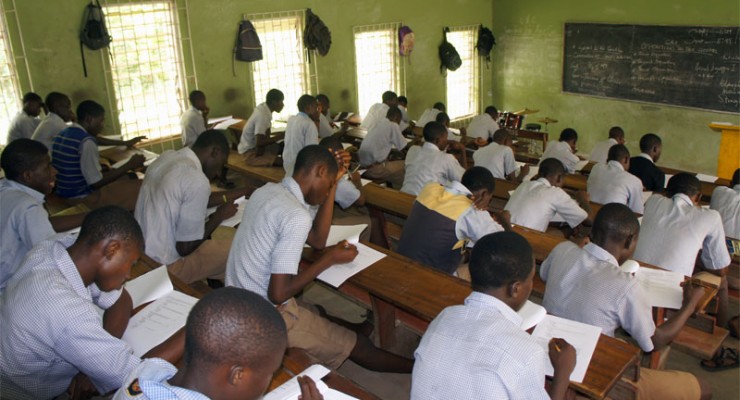That ranked the region as the topmost in examination malpractices for 2014, with over 4,000 cases.
An official of the West African Examinations Council (WAEC), Mr N.C. Johnson, who made this known, said 8,051 candidates in the 2014 WASSCE were involved in examination malpractice.
Mr Johnson, who is with the International Examinations Department of WAEC, said WAEC was worried over the upsurge in examination malpractices among students and was, therefore, looking for collaborators to help curb the practice.
He was speaking at a stakeholders’ dialogue on examination malpractices organised by WAEC in Accra yesterday.
He expressed disappointment, particularly at the type of people involved in the practice, saying parents and teachers, who ordinarily were supposed to speak against the practice, were deeply involved in and encouraged the practice.
Effects of examination malpractices
In a speech read on her behalf, the Minister of Education, Professor Naana Jane Opoku-Agyemang, recalled a recent incident in which a whole school community in the Ashanti Region chased inspectors who had called at the school to prevent the students from engaging in examination malpractices.
She said examination malpractices affected everybody and undermined the credibility of the certificates awarded to students.
“Of all the challenges we face in our effort to deliver quality education, examination malpractices should have been the least because those who should prevent it have the ability to do so,” she said.
She called on the police and the Judiciary to quicken the justice process to bring to book the perpetrators of the crime.
Efforts by WAEC
The Head of the National Office of WAEC, the Very Rev. Samuel Nii Nmai Ollennu, said WAEC alone would not be able to fight examination malpractices, stressing that it was important that all stakeholders in the sector joined hands to deal with the problem.
He said, for instance, that last year a GES examination officer, a police escort and a driver were found opening the sealed question papers and transmitting the contents using information and communications technology (ICT) to waiting candidates and interested persons for a fee while the papers were in transit.
The case, he said, was still pending “because the police claim they are waiting for advice from the Attorney-General’s outfit”.
The Very Rev Ollennu announced that the Ghana Examinations Committee had given approval to the council to close the Obuasi Centre for WASSCE private candidates due to persistent mass cheating over the past years, with worsening intensity.
Tougher sanctions
The Deputy Director of the Institute of Education at the University of Cape Coast, Prof. Jonathan Fletcher, who spoke on the theme, “Educational standards under the siege of malpractice”, appealed to stakeholders to pledge not to condone any form of malpractice, but help eradicate the canker.
He called for a revision of examination rules and regulations to deal with cases of ‘high tech’ examination malpractices.
He further called for tougher sanctions for persistent offenders, saying that the current sanctions were not deterrent enough.
The Registrar of WAEC, Mr Iyi Uwadiae, gave an assurance that WAEC would not shield any of its members of staff who got involved in any examination malpractices.











 (Selorm) |
(Selorm) |  (Nana Kwesi)
(Nana Kwesi)